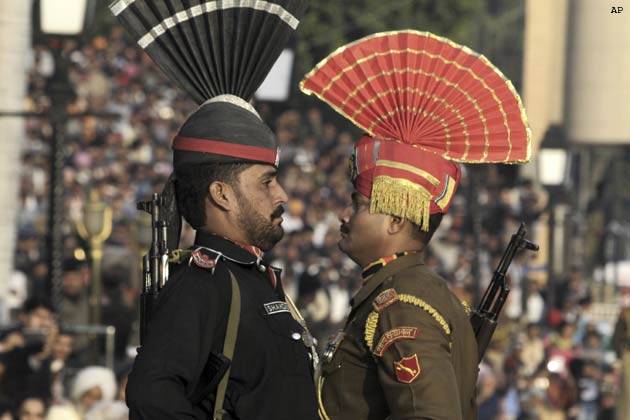Zia famously said in an interview that he gave to British journalist Ian Stephen in January 1979: “Islam for that point-of-view is the fundamental factor: it comes before wheat and rice and everything else. I can grow more wheat; I can import wheat but I cannot import the correct moral laws.” What he meant was that his political agenda – in the guise of Islam – its empowerment and promotion is more important than the economy and welfare of society.
Should a political cause be pursued if it is obvious that it will hurt the economic wellbeing of the country and its people? Should the state surrender to political causes that are detrimental to its welfare? Or should a state follow ideologically driven policies that are bound to fail?
The answers to these questions lie in two different and competing paradigms. One that wants Pakistan to be a cause, an Islamic state that is staunchly anti-Indian; and another that wants Pakistan to be a welfare state, an economically prosperous country that has friendly terms with all of its neighbors. Zia’s words make politicians’ choice clear to Pakistanis: they would pick the former approach over the later, any day. And this very mindset is the cause for the perpetual debacles in Bengal and Balochistan, economic backwardness and the dismal condition of education, health and public welfare in our country. This is the mindset that defines our ruling elite and their priority: that state apparatus is going to take suicidal paths, dangerous and counterproductive, but the cause – a parochially defined national interest – must be served. To think that this depicts the imagination of a dictator – or one individual – would be a gross misunderstanding. In the historical and political context of Pakistan, this isn’t even an anomaly. It’s the story of almost every government’s policies that have repeatedly yielded the same result: failure. This mindset is so prevalent that it’s now a part of our governance culture.
This cause is always packed in the attractive rhetoric of “national interest” – a utilitarian façade for calculated risks at the cost of common citizens. It is sold in their name who never come in the top-most priority. They are always the recipient – at the receiving end of strategic depths, of Gibraltars and search lights. The culture has taken root; entrenched and institutionalized and will take time to be replaced by an alternative culture, where welfare takes precedence over cause and education over proxy wars. That would be a real ‘paradigm shift’.
There are people who want to solve this conundrum: why do our ruling elite repeatedly pursue failed policies unabatedly? Why do they remain under the misconception that a remedy that didn’t work last year, or a decade ago, can work effectively this time around? Take for instance our policy vis-a-vis Baluchistan. There have been five major military operations in Balochistan in the past six decades. Every single time, there have been tall claims of successful elimination of anti-state elements, but that hasn’t been the case. Balochistan is as much a relevant national and humanitarian issue as it was five decades ago. What didn’t work in the first military operation, couldn’t work in the next four. So why hasn’t there been any serious introspection of our failed policies? There could have been one. Perhaps that would have led our government to realize that there are alternative unexplored solutions to our issues besides the military one.
The million dollar question is: how can this parochial strategic culture be changed? Before a change of priority and policy really takes place, there should be a debate about these issues: an open discussion about the pros and cons of each plan. That also means dissent with the official narrative and criticism of official policies. This will open new avenues of thought and break the silence on important national issue. This would be a service rather than disservice to Pakistan because, at the end of the day, the competition of ideas and narratives is just like the competition of market economy where competition brings quality. These debates will enrich the discourse, will bring reason into the prevalent unreason and will ultimately translate into actions.
Just like Sabeen, there are number of dissenting voices, which have been silenced in the dark alleys of oppression by various actors. Their crimes were to talk about human rights and shaking the sleeping conscience of the society. But is it really a crime to promote human rights causes? No. Societies should advocate and be proud of promoting such causes. But not in Pakistan, where silence is rewarded and debate is punished with blood.






